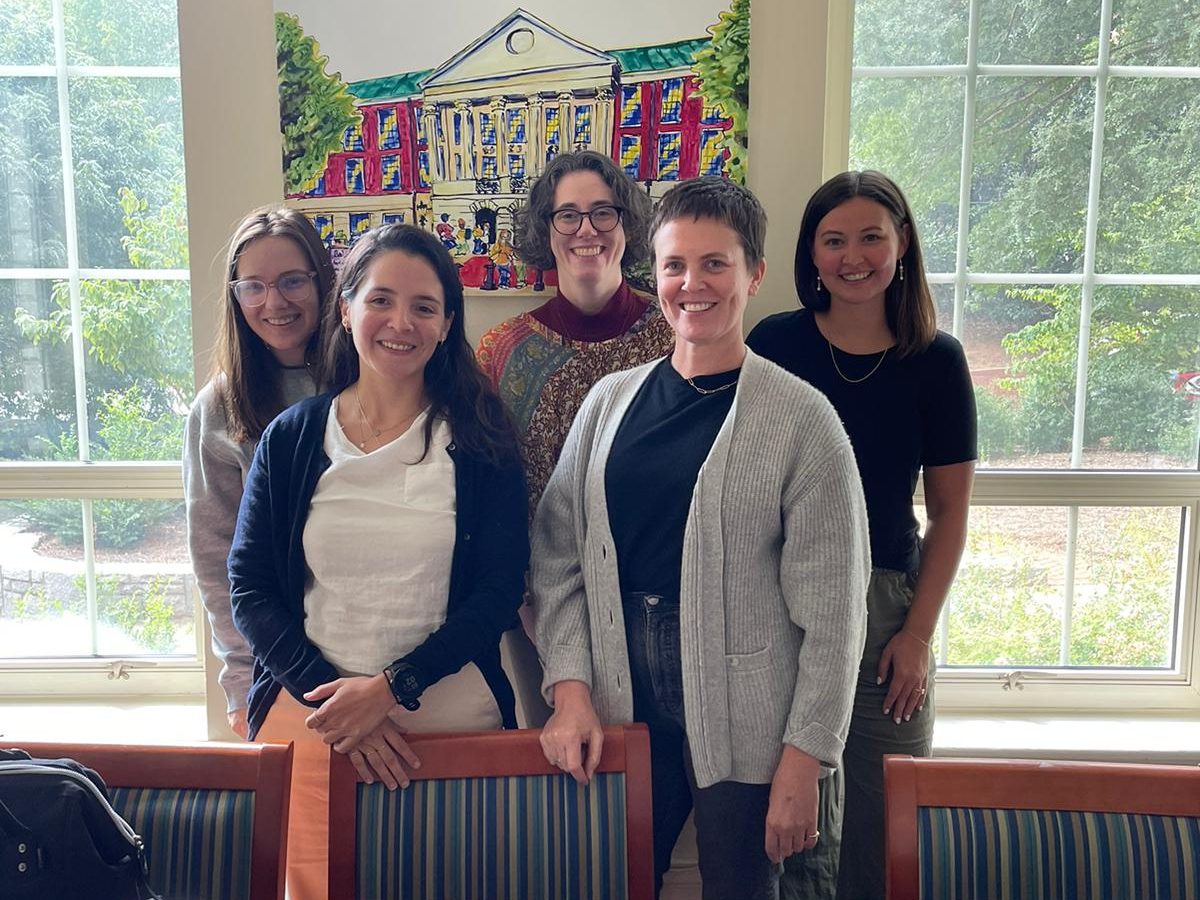About First Publics
First Publics provides a space to explore the politics, pedagogy, and practice of teaching as public sociology.
First Publics was launched in August 2023 by Sarah Shannon and Diana Graizbord. Sarah has long been inspired by Michael Burawoy’s assertion that “as teachers we are all potentially public sociologists” since students are “first and captive public.” In response, she has developed award-winning courses designed to grow and engage students’ sociological imaginations via high impact practices including service-learning and archives-based learning. Diana’s teaching practice also recognizes students as a first and most critical public, and aims to connect sociology to students’ lives and interests. Her award-winning project-based, and applied courses on policy, storytelling, theory, and methods aim to demonstrate to students sociology’s real-world problem solving potential. The impetus for First Publics came from Sarah and Diana’s desire to connect with like-minded teachers and build a community of practice around teaching as public sociology. First Publics is their attempt to create a space for teacher-scholars to engage in reflection and discussion of teaching as a vital form of public sociology (broadly defined).
First Publics publishes first-person reflections on the embodied and experiential aspects of teaching as public sociology and curates dialogues on timely topics and long-standing concerns related to teaching as public sociology. First Publics also publishes innovative approaches to teaching as class notes, and connects to content on teaching as public sociology from around the web.
Goals & Mission
The goal of First Publics is to provide a platform for an online community of practice centered on teaching as an essential form of public sociology. We hope to be a space for critical reflection and a useful resource for those interested in teaching as public sociology in higher educational settings, across institution types (e.g., 2-year, 4-year, private, public, etc.) and teaching roles (e.g., grad student instructors, adjunct, lecturer, teaching professor, tenure-track, etc.) as well as contexts outside of the US.
First Publics does not advocate for a particular set of pedagogical practices or approaches. The editors of First Publics are, however, committed to a politics of care and engagement and strive to create an equitable and inclusive space. We acknowledge and hope to interrogate the inequalities that define teaching and shape opportunities for public engagement across the uneven institutional landscape of higher education within and outside the United States. First Publics strives to be a collaborative and inclusive space and build a diverse and welcoming community of readers and collaborators.
Our Team

Sarah Shannon, Co-Editor, is Meigs Distinguished Professor of Sociology and Director of the Criminal Justice Studies Program at the University of Georgia. Her research focuses on systems of criminal punishment and their effects on social life. In the immortal words of Chuck D, Sarah hopes to “teach the bourgeois and rock the boulevard” in her work as a public sociologist inside and outside the classroom.
Diana Graizbord, Co-Editor, is Assistant Professor of Sociology and Latin American and Caribbean Studies at the University of Georgia. She conducts research on the politics of expertise, mostly in the Mexican context. Diana loves teaching and is committed to public sociology.
Stephanie Hanus, Editorial Assistant, is a Doctoral Candidate in the Department of Sociology at the University of Georgia. Her teaching and research interests are in the areas of family, life course, and aging.
Natalia Pires De Vasconcelos, Series Manager, is a second-year graduate student in Sociology at the University of Georgia. She holds a Ph.D. in Law from the University of São Paulo and an LLM from Yale Law School. Her areas of study include medical sociology, sociology of punishment, and sociology of law.
Emily Tingle, Social Media Manager, is a second-year doctoral student in Sociology at the University of Georgia where she currently serves as the department’s writing intensive teaching assistant. She holds a Master of Science degree in Sociology from Mississippi State University. Her areas of study include political sociology, social movements and collective action, and rural sociology.
